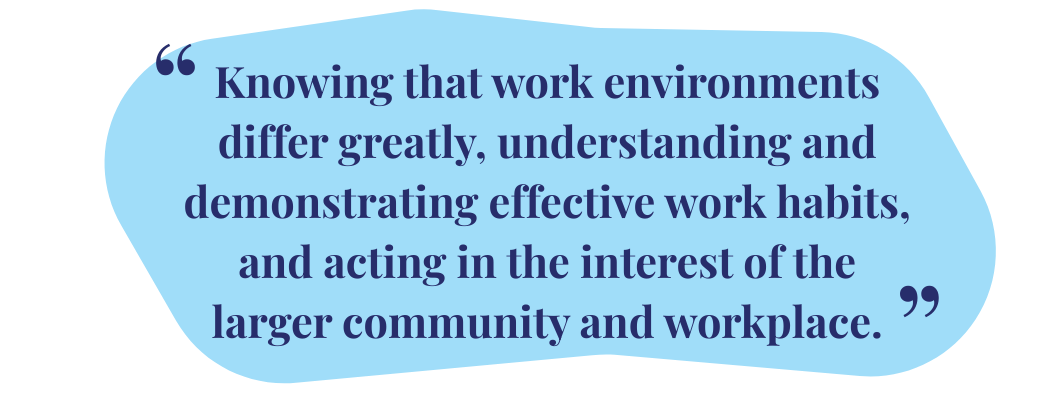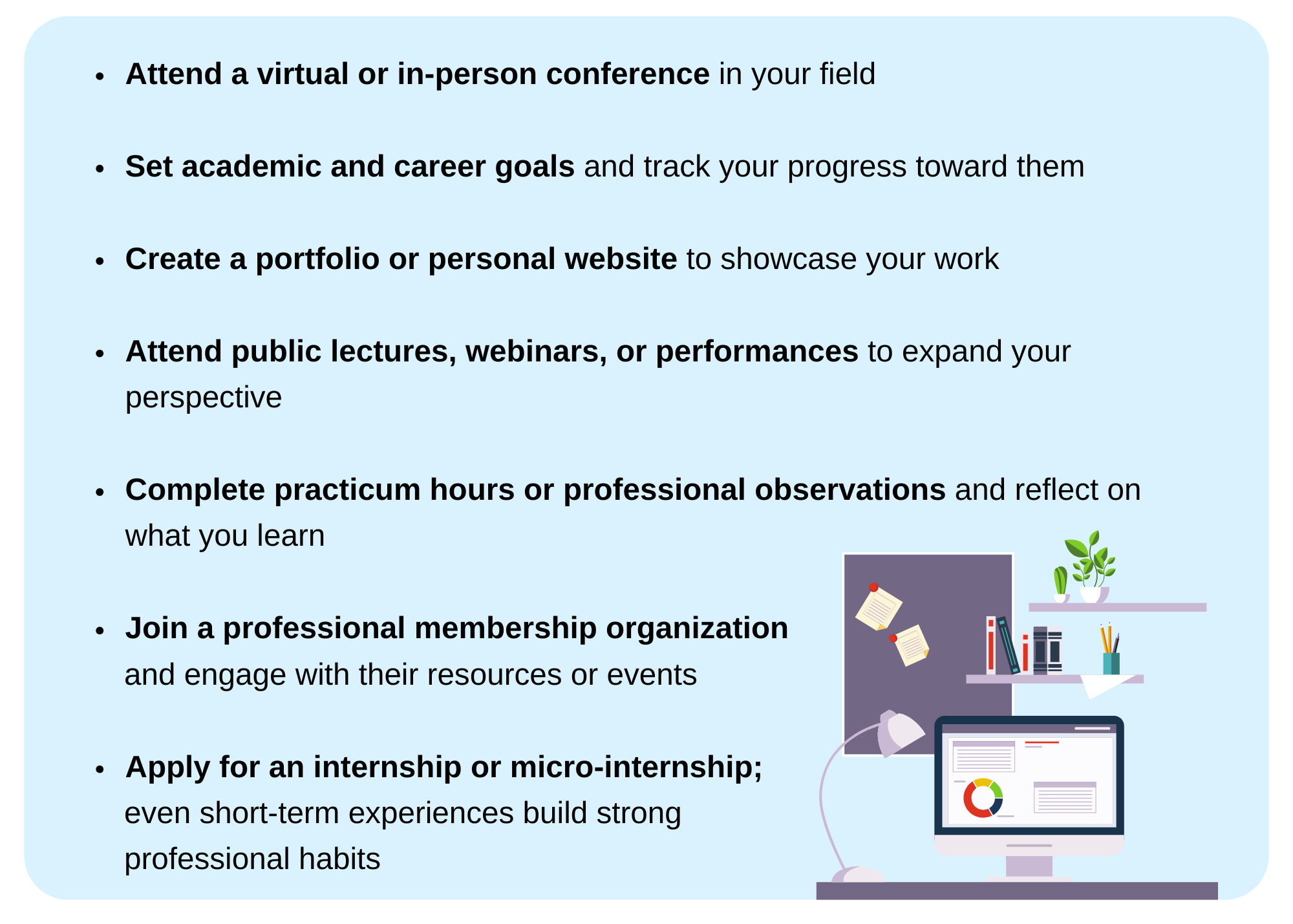Professionalism is more than wearing the right outfit or using the correct email greeting—although those things matter too. At its core, professionalism is about how we show up, how we work with others, and how we demonstrate responsibility, respect, and excellence. In this sixth installment of our Career Readiness Competency series, we’re exploring Professionalism. As defined by the National Association of Colleges and Employers (NACE), Professionalism is:

Professionalism helps you build trust with others, meet expectations, and adapt successfully to a variety of work environments. Let’s explore what this competency looks like in action.
Sample Behaviors and Real-World Examples
| Act equitably with integrity and accountability to yourself, others, and the organization. |
➨ |
|
| Maintain a positive personal brand in alignment with organization and personal career values. |
➨ |
|
| Be present and prepared. |
➨ |
|
| Demonstrate dependability. |
➨ |
|
| Prioritize and complete tasks to accomplish organizational goals. |
➨ |
|
| Consistently meet or exceed goals and expectations. |
➨ |
|
| Have an attention to detail, resulting in few if any errors in their work. |
➨ |
|
| Show a high level of dedication toward doing a good job. |
➨ |
|
Building Professionalism as an Online Student
Many of the behaviors above can be practiced in an academic setting as well as the workplace. Here are some additional ways you can actively build professionalism during your studies:

Each of these experiences helps you develop skills that translate directly into the workplace: showing up, staying engaged, and holding yourself to high standards.
HealthcareIn healthcare, professionalism is the bedrock of trust between providers, patients, and teams. Health professionals must demonstrate integrity, accountability, and attention to detail in every interaction, from accurate record-keeping to showing empathy during patient care. Timeliness, confidentiality, and respectful communication are ethical obligations. Whether you’re a nurse, administrator, or technician, professionalism ensures patient safety, fosters collaboration, and upholds the standards of the profession. |
 |
 |
EducationFor educators, professionalism sets the tone for both learning and leadership. Teachers, school administrators, and education support staff serve as role models, shaping how students engage with the world. Punctuality, preparedness, and ethical behavior are key to building credibility and maintaining a positive learning environment. Professionalism also plays a critical role in partnerships with parents, collaboration with colleagues, and alignment with institutional goals—all of which contribute to student success. |
Business & TechnologyIn fast-paced business and tech environments, professionalism distinguishes you as someone who’s reliable, adaptable, and ready to lead. It shows up in how you manage your time, communicate with clients or colleagues, and handle changing demands with composure. From writing polished emails to delivering results under pressure, professionalism is often what separates good employees from great ones. It reflects your personal brand and strengthens your professional reputation, which are two things that matter in every industry. |
 |
Ready to Put Professionalism Into Practice?
Professionalism is a foundation for every career field. Whether you’re launching your first job search, preparing for graduate school, or building a second career, showing up with integrity, focus, and dedication will always set you apart.
Explore our academic programs and take the next step toward your future by applying today!
Jump to the other Career Readiness Competencies:
Overview
Career & Self Development
Communication
Critical Thinking
Equity & Inclusion
Leadership
Professionalism
Teamwork
Technology

